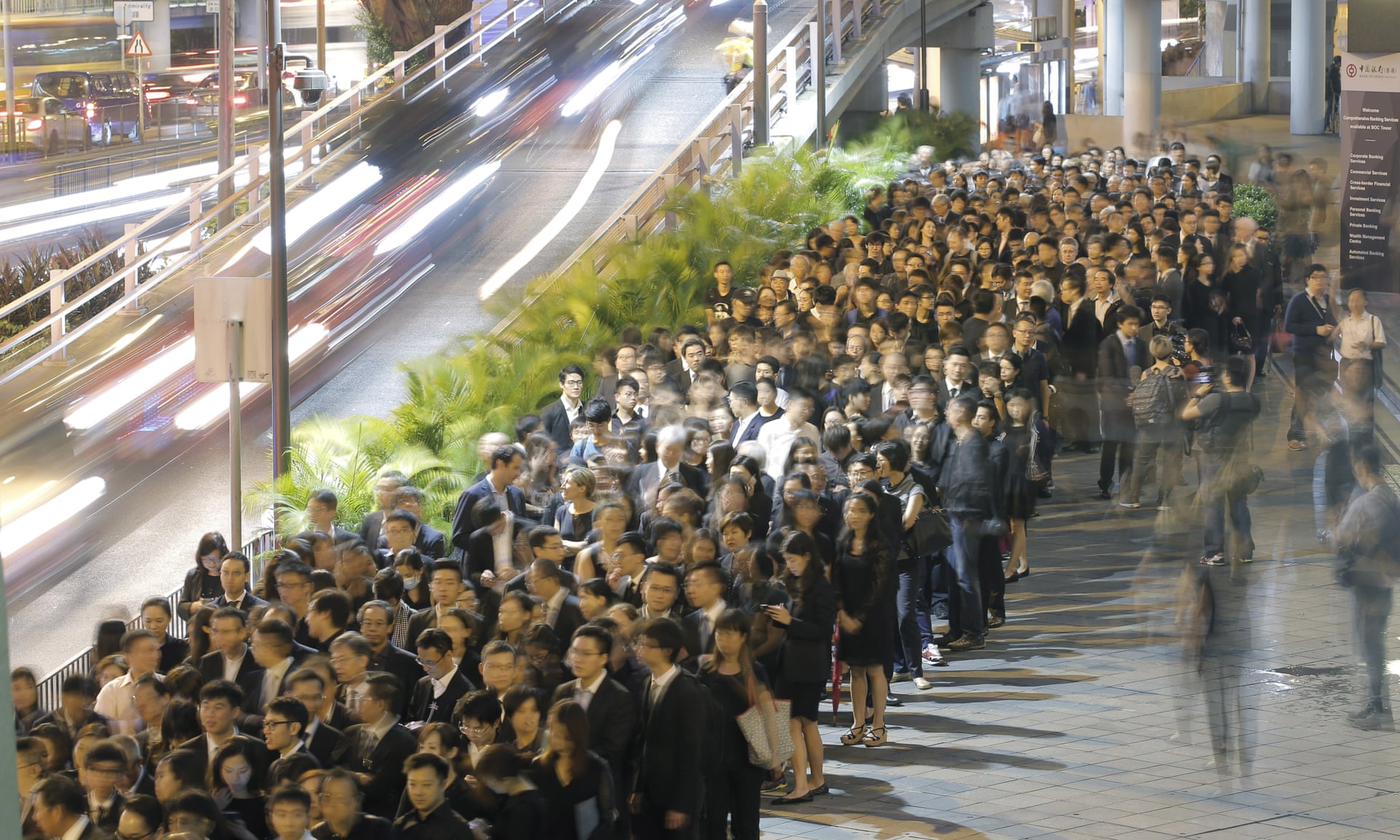Instead of dealing with a political problem, China has sought confrontation
By Editorial

Hong Kong lawyers taking part in a silent protest earlier this month. They were objecting to Beijing’s intervention in a local political dispute that effectively barred two popularly elected separatist lawmakers from taking office.

Hong Kong lawyers taking part in a silent protest earlier this month. They were objecting to Beijing’s intervention in a local political dispute that effectively barred two popularly elected separatist lawmakers from taking office.
No one can accuse Chris Patten, Hong Kong’s last colonial governor, of not being prepared to scrap with China to defend liberal values in the territory.
The Conservative peer and chancellor of the University of Oxford took the view – rightly – two decades ago that Hong Kong’s prosperity was underpinned by a free and plural society.
In doing so he earned the enmity of Beijing.
Its media organs churned out ever more elaborate descriptions of the governor.
A “serpent” and a “wrongdoer who would be condemned for a thousand generations” are among the kinder epithets hurled by mainland propagandists.
His elected council was dissolved upon Hong Kong’s handover to the people’s republic in 1997.
So it is strange now, perhaps, to find Beijing and Lord Patten in agreement over the antics of two pro-independence Hong Kong legislators.
So it is strange now, perhaps, to find Beijing and Lord Patten in agreement over the antics of two pro-independence Hong Kong legislators.
Yau Wai-ching, 25, and Sixtus “Baggio” Leung, 30, had pledged allegiance to the “Hong Kong nation” and unfurled a banner declaring “Hong Kong is not China” during a swearing-in ceremony earlier this year.
In conflating the push for greater democracy with the argument for independence, activists are, in Lord Patten’s words, “dishonest, dishonourable and reckless”.
Words that might not go amiss in the editorials of Beijing’s mouthpiece Global Times which mocked “the Hong Kong independence farce”.
Full-blown secession from the mainland is a pipe dream.
Full-blown secession from the mainland is a pipe dream.
China’s communist leaders have zero tolerance for independence movements in restive Tibet and Xinjiang, home to minorities that resent Beijing’s rule.
These regions suffer from periodic “strike hard” campaigns to crush dissent.
Beijing is unlikely to let a Chinese-majority showcase city slip away.
Yet calls for an independent Hong Kong are made from anger rather than reason.
Independence sentiments were roused in the aftermath of 2014’s pro-democracy Umbrella Revolution.
The mess is of Beijing’s own making.
Two years ago, Hong Kong was ranked number one for crony capitalism by the Economist.
When Beijing rejected demands for open elections for Hong Kong’s next chief executive it energised protesters.
The Occupy-style movement ended up with police firing tear gas on peaceful protesters.
Since then Beijing’s interference in local affairs has been heavy-handed.
Since then Beijing’s interference in local affairs has been heavy-handed.
Liberal academics have been cowed and there are calls for “patriotic education” in Hong Kong. Booksellers have been spirited away.
What was being hollowed out was Beijing’s “one country, two systems” policy, meant to guarantee Hong Kong’s way of life.
By the summer crowds gathered for Hong Kong’s first ever pro-independence rally.
Instead of dealing with a political problem, China has sought confrontation and control – threatening new national security laws that outlaw treason.
When Beijing took over, Hong Kong was one-fifth of China’s economy.
Now it is one-fiftieth.
The problem is that, without dialogue and compromise, the situation is likely to get worse before it gets better.
Aucun commentaire:
Enregistrer un commentaire